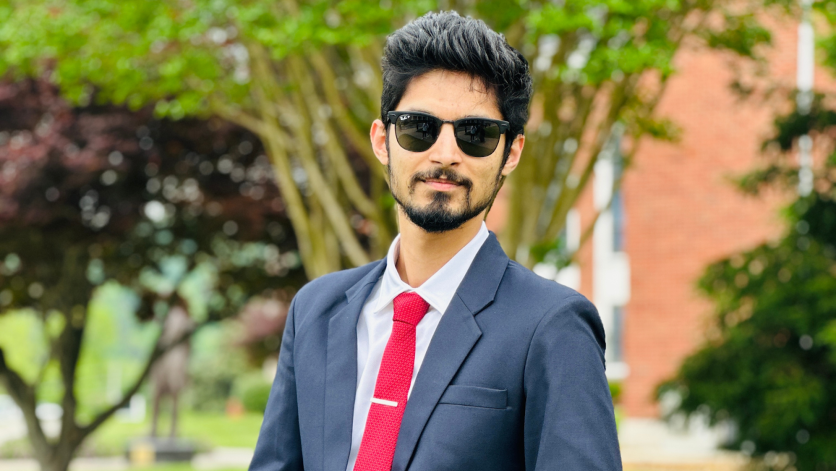
Precision in technology development separates functioning systems from transformative ones. Milind Cherukuri has built a career applying engineering discipline to enterprise software while advancing frameworks for responsible artificial intelligence. His work demonstrates that technical excellence and ethical considerations are complementary requirements for innovation.
Engineering Foundation: Building Systems That Scale
Cherukuri's professional trajectory began in enterprise software development, where he built backend solutions for large-scale infrastructure projects. At Infor, he developed ERP modules using Java, Spring, and Hibernate, technologies fundamental to enterprise resource planning systems, managing critical operations. His subsequent role at Amazon involved enhancing backend services supporting thousands of developers.
Backend engineering at this scale demands particular rigor: distributed system design, fault tolerance, performance optimization under variable loads, and maintaining reliability across global infrastructure. These aren't abstract challenges but concrete problems where solutions directly impact developer productivity and system availability.
"Engineering exists to solve real problems," Cherukuri explains. "The best work happens when you understand both technical architecture and human systems it serves. You're not optimizing algorithms in isolation, you're removing obstacles preventing people from doing their jobs effectively."
Research Contributions: Building Frameworks for AI Safety
Cherukuri maintains an active research practice spanning five peer-reviewed papers addressing practical AI challenges. His December 2024 paper, "Advancing AI Safely: Frameworks and Strategies for GPT-5 and Beyond," presented at EEET conference in Malaysia, proposed governance models for next-generation language models, addressing gaps as AI systems scale.
His 2025 research on prompt engineering evaluated different strategies across cost, accuracy, and reliability dimensions. Teams adopting his framework reduced language model inference costs by 20 to 35 percent while maintaining output quality. Enterprises deploying large language models face substantial expenses, and prompt-level optimization delivers immediate, measurable cost reduction.
Additional research included image segmentation algorithms, comparing simulated annealing against traditional methods. The paper demonstrated global optimization techniques achieved 99.19 percent agreement with original images compared to 96.21 percent for conventional methods. His sentiment analysis paper explored whether multiple dimensions for emotion classification provides advantages over binary approaches, addressing applications where understanding emotional nuance improves response quality.
His February 2025 paper "WebChecker: A Versatile EVL Plugin for Validating HTML Pages with Bootstrap Frameworks" introduced a tool for enforcing rules governing HTML and CSS frameworks through configurable constraints, addressing the practical challenge of ensuring web page compliance.
Recognition and Editorial Leadership
In March 2025, the Institute of Electrical and Electronics Engineers elevated Cherukuri to Senior Member status, requiring at least ten years of professional experience and five years of demonstrated contributions. Within IEEE's global membership exceeding 400,000 professionals, fewer than 10 percent achieve this grade.
He joined the editorial board of CS Science and Engineering Journal in April 2025 and serves as peer reviewer for respected journals. Editorial work involves helping researchers strengthen methodologies, improve clarity, and ensure reproducibility. "When I review submissions, I'm asking: Does this work advance the field? Can another researcher reproduce and build on it?" Cherukuri explains.
The Clareus Scientific Society invited him to join its board in 2025, recognizing his contributions to AI ethics and systems engineering. These roles position him within academic conversations shaping research standards as AI tools increasingly influence scholarly work.
Shaping Discussions on Responsible Technology
His speaking engagements address audiences concerned with practical AI implementation and governance frameworks. In March 2025, he spoke to approximately 300 graduate students and researchers at an IEEE Author Workshop on research publishing and responsible AI. Conference presentations at ICDSCA and EEET addressed audiences working on deep learning and AI safety.
"Speaking to the next generation of technologists matters," he emphasizes. "Conversations about responsible technology use and rigorous methodology set the direction for how this field develops."
The Common Thread: Deliberate Problem-Solving
Cherukuri's work across enterprise software, AI research, and editorial leadership reveals a consistent approach: identifying gaps where solutions fail, understanding root causes, and building systems addressing fundamental problems.
"I've always been drawn to gaps," Cherukuri reflects. "Where is something missing? Not because it's trendy, but because fixing it matters to people doing real work. That's where the best problems live."
As AI systems become increasingly integrated into research, business operations, and public services, the need for professionals combining technical capability with rigorous, responsible development grows critical. Cherukuri's trajectory demonstrates what this combination produces: systems that work reliably, research advancing understanding, and leadership strengthening standards guiding technological development.
ⓒ 2025 TECHTIMES.com All rights reserved. Do not reproduce without permission.




